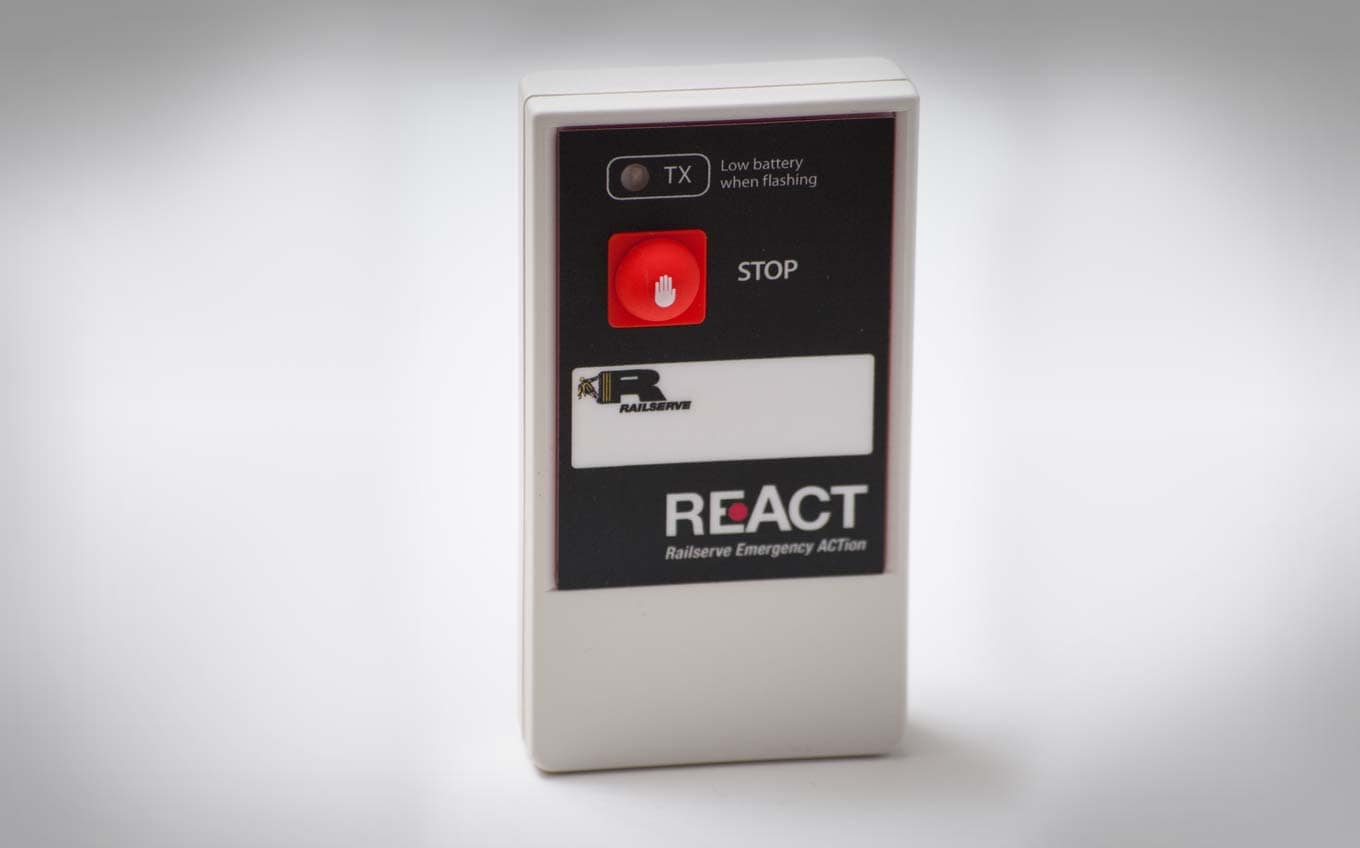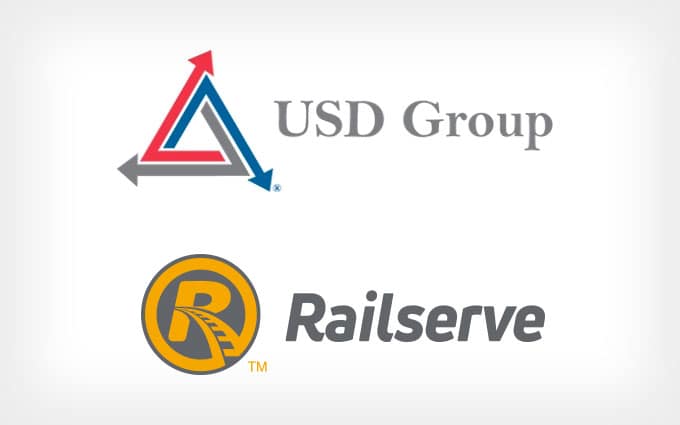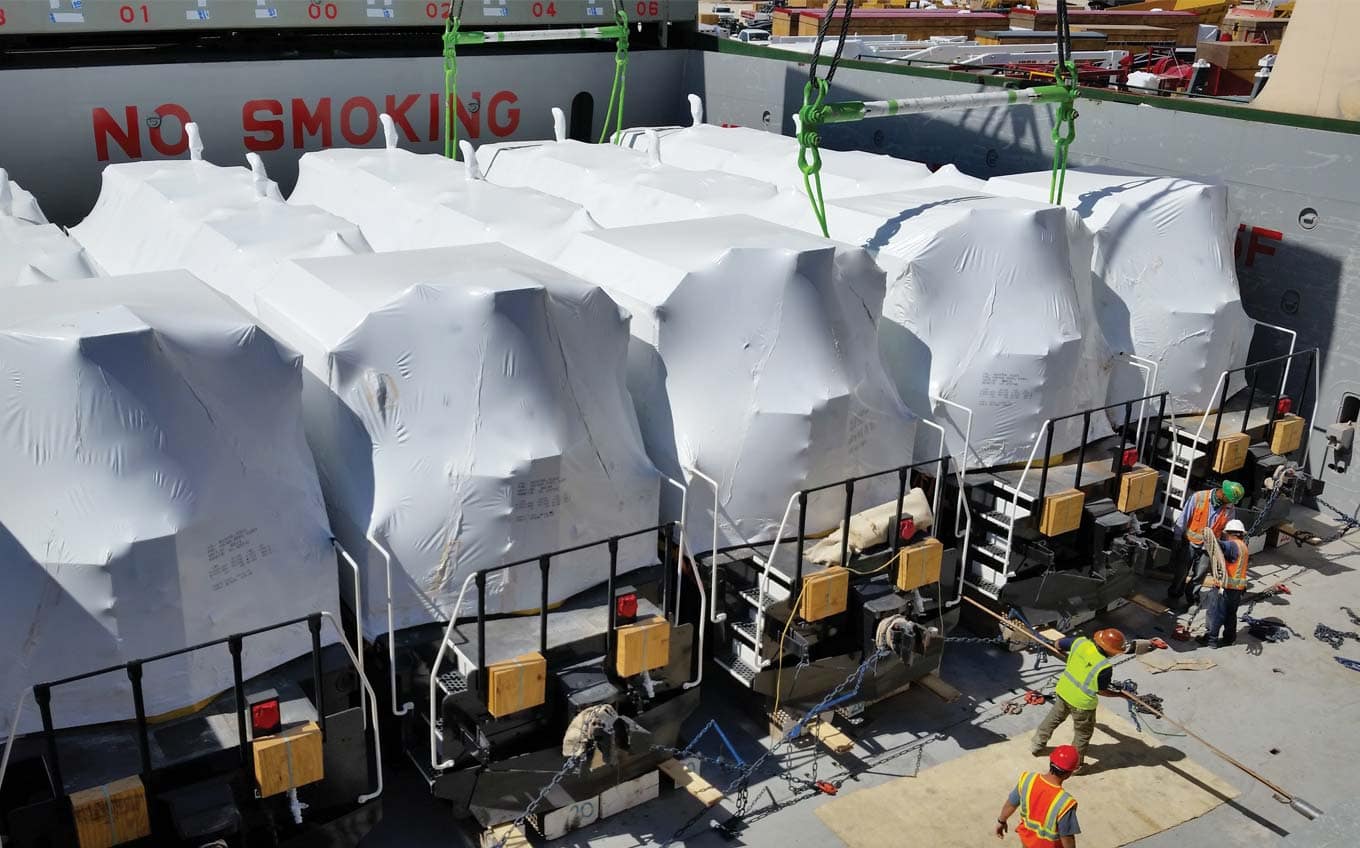New Safety Technology Installed on more than 140 Switching Locomotives
Railserve has developed and implemented new technology that allows its employees to remotely stop locomotives with the push of a single button worn on their safety gear.
Railserve, the largest North American provider of in-plant railcar switching and associated services, is now using the Railserve Emergency ACTion Technology (REAct) at all of its 65-plus service locations. This application of remote-stop technology on manned locomotives is believed to be the first of its kind in North America.
When a hazard is recognized, REAct allows authorized employees to stop a train without communicating to the engineer. These life-saving seconds can be critical when a vehicle enters a crossing in front of a train, when radio contact is lost, or when a close clearance suddenly arises. An emergency brake application is activated by pushing a button worn on a crew member’s safety vest.
“REAct was developed as part of our ongoing safety-evaluation process,” says Railserve President Timothy J. Benjamin. “We recognized that circumstances can suddenly arise, such as when a vehicle crosses in front of an approaching train, or where the locomotive operator might not be able to see what the crew member on the ground is viewing.
“We’ve measured the time lag from the moment a crew member recognizes a hazard to getting the radio in hand, opening communications, actually speaking a clear instruction, and for the train to come to a stop. That can take several valuable seconds—enough time for a train to move a hundred feet or more,” said Benjamin.
Experience with REAct shows the emergency stop can be accomplished in as little as a half car-length, or about 26 feet. That shorter stopping distance can mean the difference between a miss or a collision, and reduce the risk of personal injury or even death.
Installation of REAct technology on all Railserve locomotives and the accompanying operator training was completed in 2013. In its first few months, it has been activated to prevent crossing collisions, as well as other instances where hazards have suddenly developed. A near-miss report is required each time the device is used to determine if there are lessons for preventing potential incidents or injury.
“Though we’ll never know which—if any—of those instances would have had negative outcomes, we are confident that our operational safety has been enhanced by REAct,” says Benjamin. “That’s why we’re so proud to be the only North American operator of manned locomotives to be offering this important safety feature.”
More information about this unique technology is available at: www.railserve.biz/react.html.





